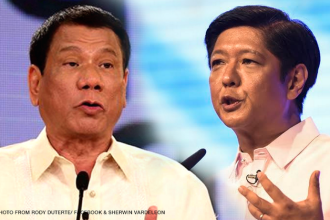
Metro Manila (CNN Philippines, January 5) — Filipino consumers spent an average of ₱9 to ₱10 more per kilo of rice last month, a huge increase compared to prices estimated in December 2022, according to government data.
At a briefing on Friday, National Statistician Dennis Mapa said rice inflation nationwide soared to 19.6% in December, the fastest since March 2009 when the country logged 22.9%.
Last month’s data was even higher in areas outside the capital region, reaching 20.3%. In Metro Manila, rice inflation was at 13.6%.
Mapa provided the following figures comparing December 2023 prices from a year ago:
Average price of regular-milled rice per kilo
₱48.50 (December 2023)
₱39.63 (December 2022)
Average price of well-milled rice per kilo
₱53.82 (December 2023)
₱43.98 (December 2022)
Average price of special rice per kilo
₱63.08 (December 2023)
₱53.83 (December 2022)
He said the increases ranged from ₱9 to close to ₱10.
The official reiterated that rice holds a major weight in the food basket, which could affect the overall inflation rate.
Mapa, however, did not mention the reason behind the increase anew in rice prices.
In August 2023, President Ferdinand Marcos Jr. said rice is the country’s “most critical problem” after authorities recorded spikes in prices.
The chief executive then imposed a price cap on rice in September, in effect for one month, amid issues on supply and prices.
Marcos earlier blamed the high prices on smugglers and hoarders, as well as other Asian countries’ moves to boost their rice reserves.
RELATED: Marcos now blames buying spree among Asian countries for surging rice prices
As the rice situation continues to pose threats to inflation, National Economic and Development Authority head Arsenio Balisacan hinted at the possibility of slashing tariff on rice imports.
RELATED: Marcos extends tariff cuts on rice, corn, pork until end-2024
“Amid an uptrend in international rice prices and the expected negative impact of the El Niño phenomenon, the Interagency Committee on Inflation and Market Outlook will closely monitor the situation and propose further temporary tariff adjustments if necessary. We will also push for trade facilitation measures to reduce other non-tariff barriers,” he said in a statement.
“While our medium-term objective to boost agricultural productivity remains, it is important to augment domestic supply to ease inflationary pressures on consumers, particularly those in low-income households,” Balisacan added.
















